Now’s the time for us to help them
Our oldest strains of carp may have existed for centuries on their own but, in the current climate of predation, poor water quality, fashion for king carp, and angling trends that favour ‘biggest is best’, they face their toughest-ever challenge for survival.
Please join the Wild Carp Trust or donate to support our conservation efforts and contact us if you know of a water or waters containing heritage strains of carp, especially if these fish are at risk or if the waters could be leased or purchased by the Wild Carp Trust. Similarly, should you know of a water that does not contain any other form of carp and might be suitable for stocking with wildies, please let us know.
Please see the Wild Carp Trust Blog for our latest conservation activities and achievements.
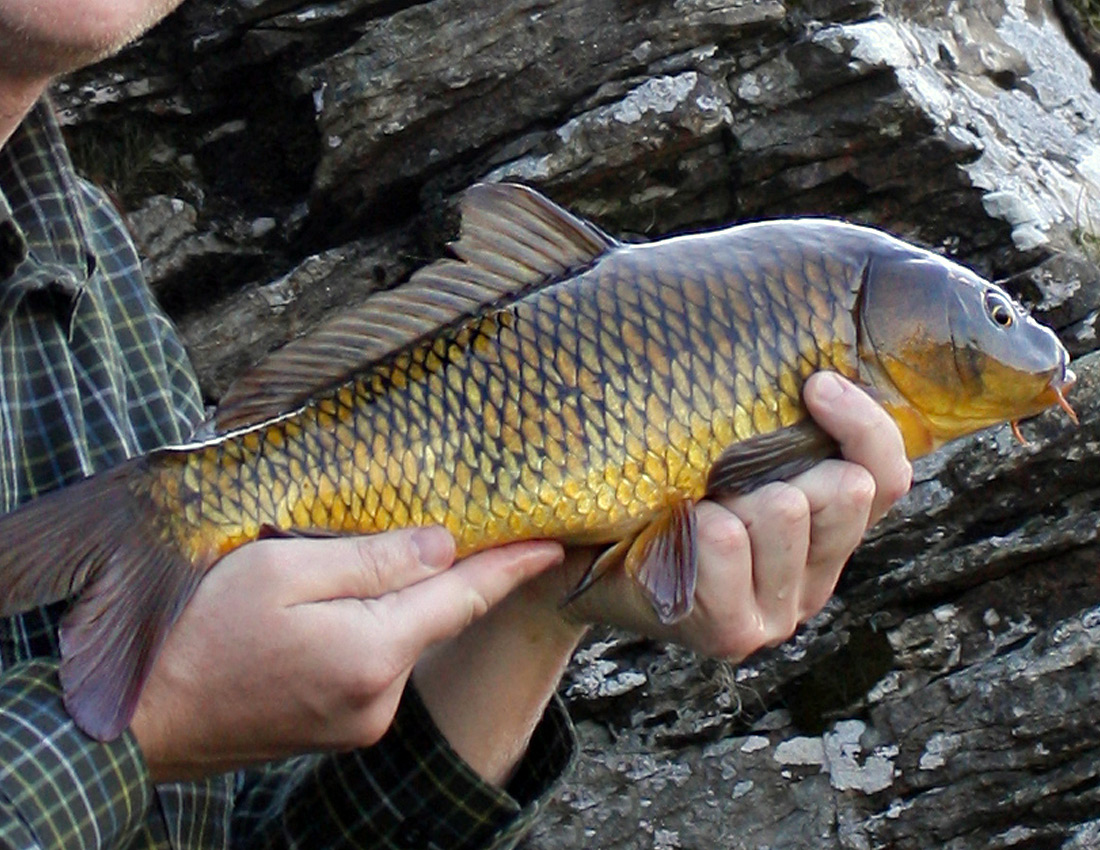
Making a difference for wild carp
Famous primatologist Jane Goodall said, “What you do makes a difference and you have to decide what kind of a difference you want to make.” This call to action helps us to understand what’s important for the natural environment and our lives. As the old saying goes, “What sort of world do we want to give to our children?”
Action for wild carp
Wild carp, feral carp, wildies, wild-like carp, wild-type carp, heritage carp, ‘real’ carp, call them what you will. These fish are wonderful and priceless golden treasures. But the oldest strains are so rare and vulnerable. They could be wiped out by pollution, predation, or the introduction of king carp to their waters. Hence the formation of the Wild Carp Trust to protect them. We’re a conservation charity that seeks to:
- Conserve of our oldest strains of carp
- Educate people about the history and importance of these heritage strains
- Champion the wild carp, promoting its historic importance and excellent sporting quality to anglers
- Celebrate this wonderful fish, through events and awards.
When we mention ‘we’, we’re ideally including you. We hope that you will support us and be active in helping to protect and savour our oldest strains of carp. Together we could use our skills, connections, resources and energy to do something that gives these wonderful fish a better future and makes the difference that we want to make. As environmentalist Edward Abbey said, “It is not enough to understand the natural world; the point is to defend and preserve it.”
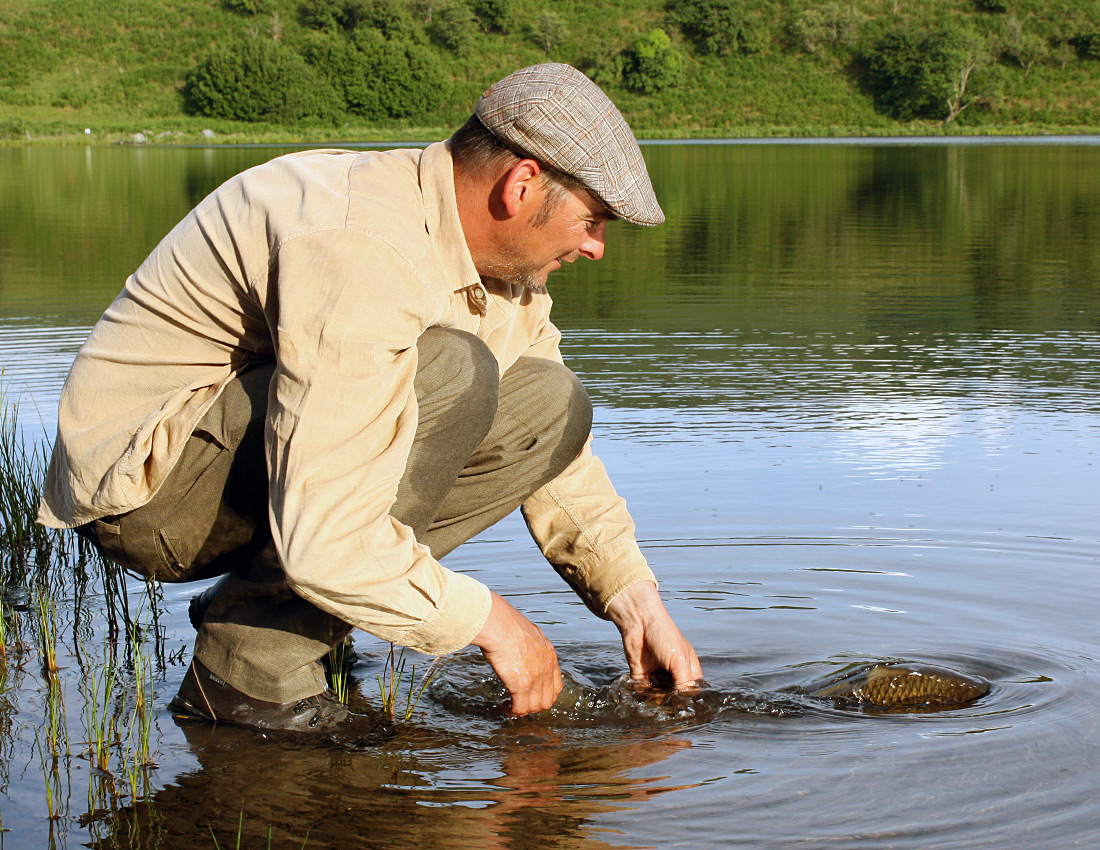
Conservation
The Wild Carp trust seeks to conserve our oldest strains of carp by:
- Securing pools and stock ponds (lease, purchase or syndicate) that either contain heritage strains today, or could be used to stock wildies in the near future.
- Improving the habitat of these pools to optimise wild carp recruitment (spawning success) and fish survival
- Protecting these waters from:
- Predation, by erecting otter fencing and, in the case of stock ponds, by netting them to protect from cormorants
- Poaching, by maintaining a physical presence (through nature studies and angling)
- Ignorance, by ensuring that those who own or have access to them do not stock them with modern strains of carp.
- Stocking new (carp-free) waters with wildies that have been bred in our stock ponds
Longer term, we seek to provide funding and advice to others wishing to restore, maintain or create wild carp pools and populations. Our ultimate conservation goal is to help fund the research programmes and protected gene pools (lakes) containing the few remaining true wild carp.

Our conservation pools
We have secured six conservation pools to date: Cowslip Pool and Iris Pool for the Pant y Llyn strain of wild carp, and Edward’s Pool, Fortmere, James’ Pool, and Rectory Pond for the Llyngwyn strain.
As Ark Projects for the first fish to be conserved, our conservation pools house brood stocks from which naturally-spawned offspring will be transferred to new waters. As such, their locations are kept secret to protect the fish they contain.
We are searching for additional conservation pools, stock ponds, and fishery or fish-rearing partners to help care for and grow new carp secured by the Wild Carp Trust; also public access waters where people can experience these rare carp first hand. Please contact us if you have a suitable pool* or land in which a pool or stock ponds could be created.
*The Wild Carp Trust requires the owners of pools receiving our fish to sign a covenant confirming that the strain of carp will remain pure. This means that the pool must not already hold any carp, goldfish or crucians, and that no carp from another strain will be stocked in future.
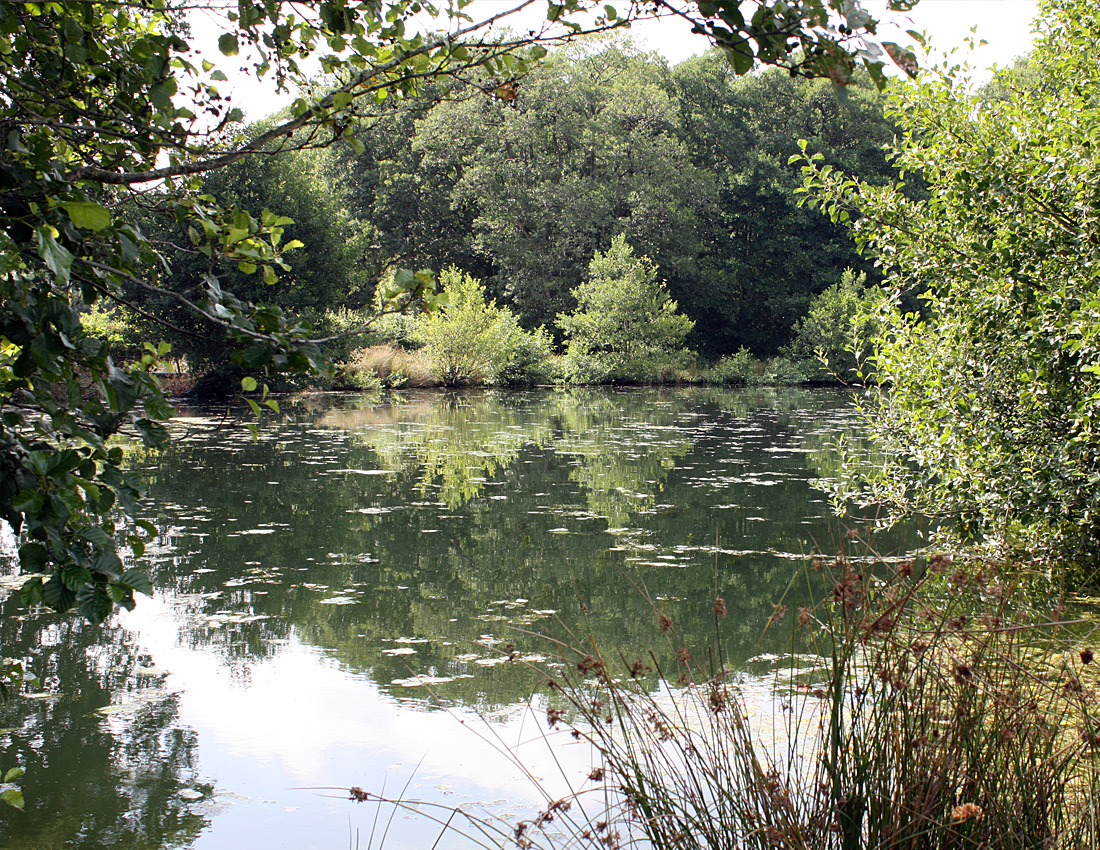
Our wild carp conserved to date
Since our charity’s formation in 2021 we have worked hard to conserve as many carp and heritage carp strains as we can. We’ve worked closely with landowners to conserve fish in their home waters (highlighting the scarcity and importance of these fish) and creating back up stocks in protected pools.
We now have several thousand carp in our care. It sounds a lot, but most of these are fry. We thought you’d like to see some of these baby fish as evidence of our investment in the future of these historic strains.
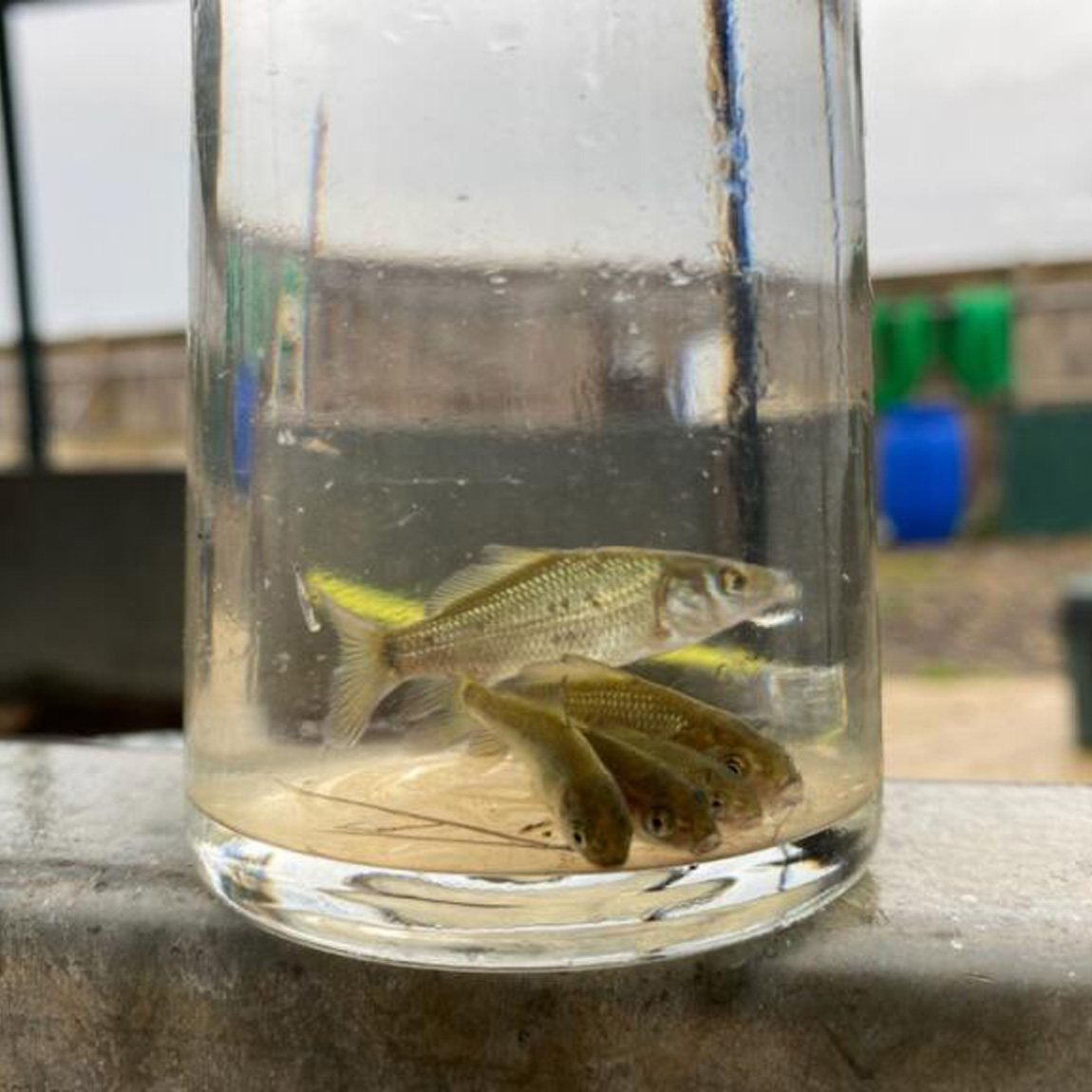
“Class of 2021” grown from eggs collected at Pant y Llyn
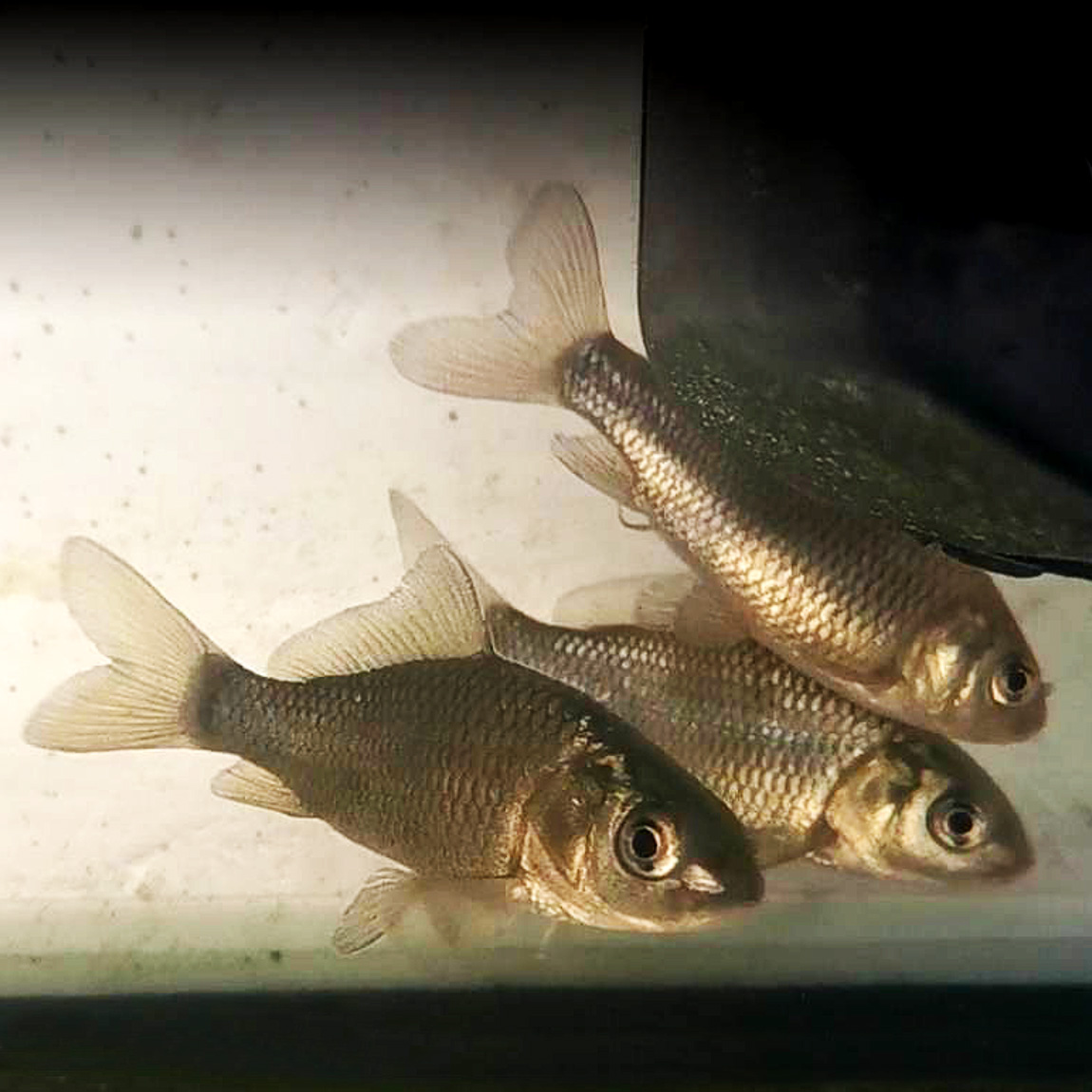
“Class of 2022” collected as fry from Pant y Llyn.
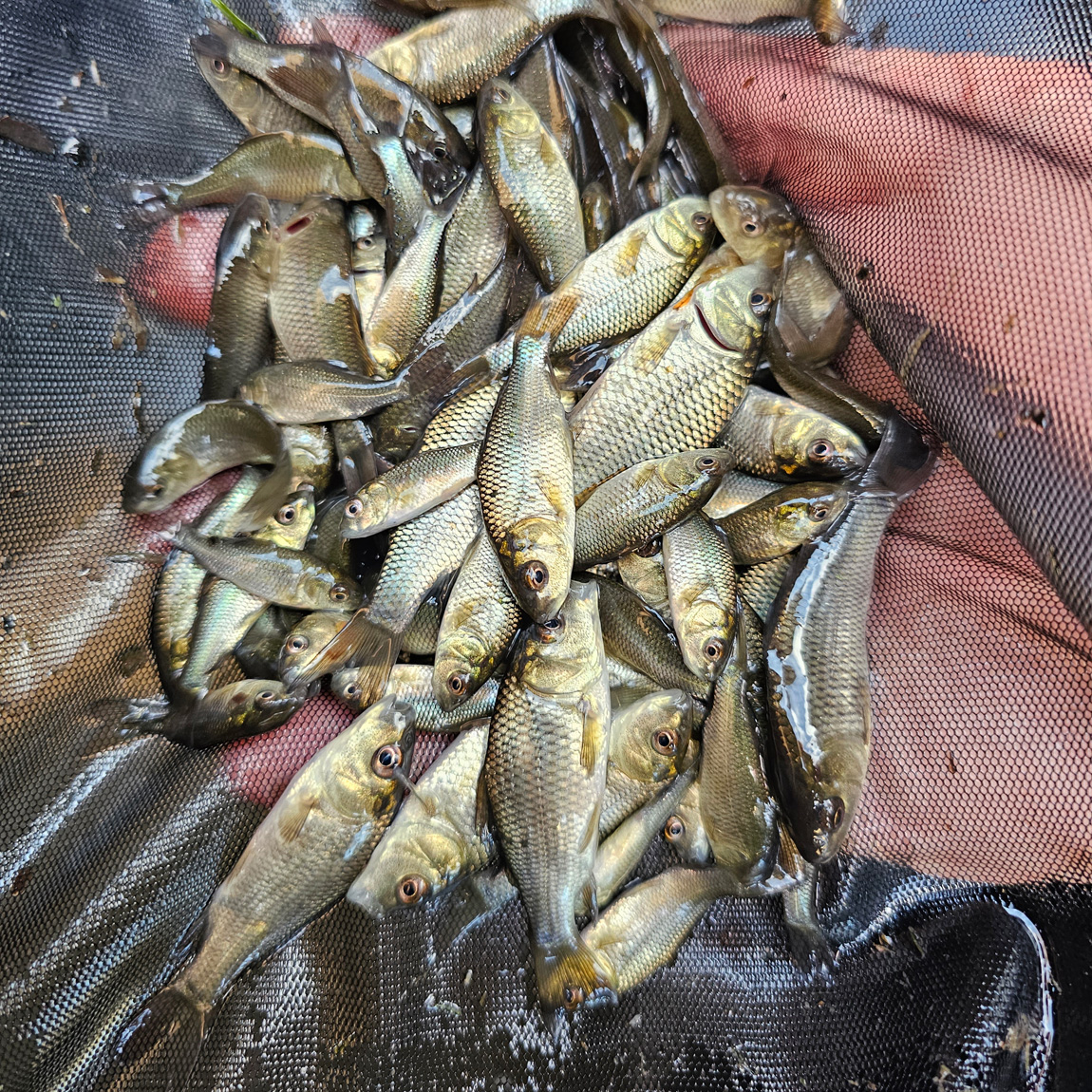
“Class of 2023′ collected as fry from Llyngwyn.
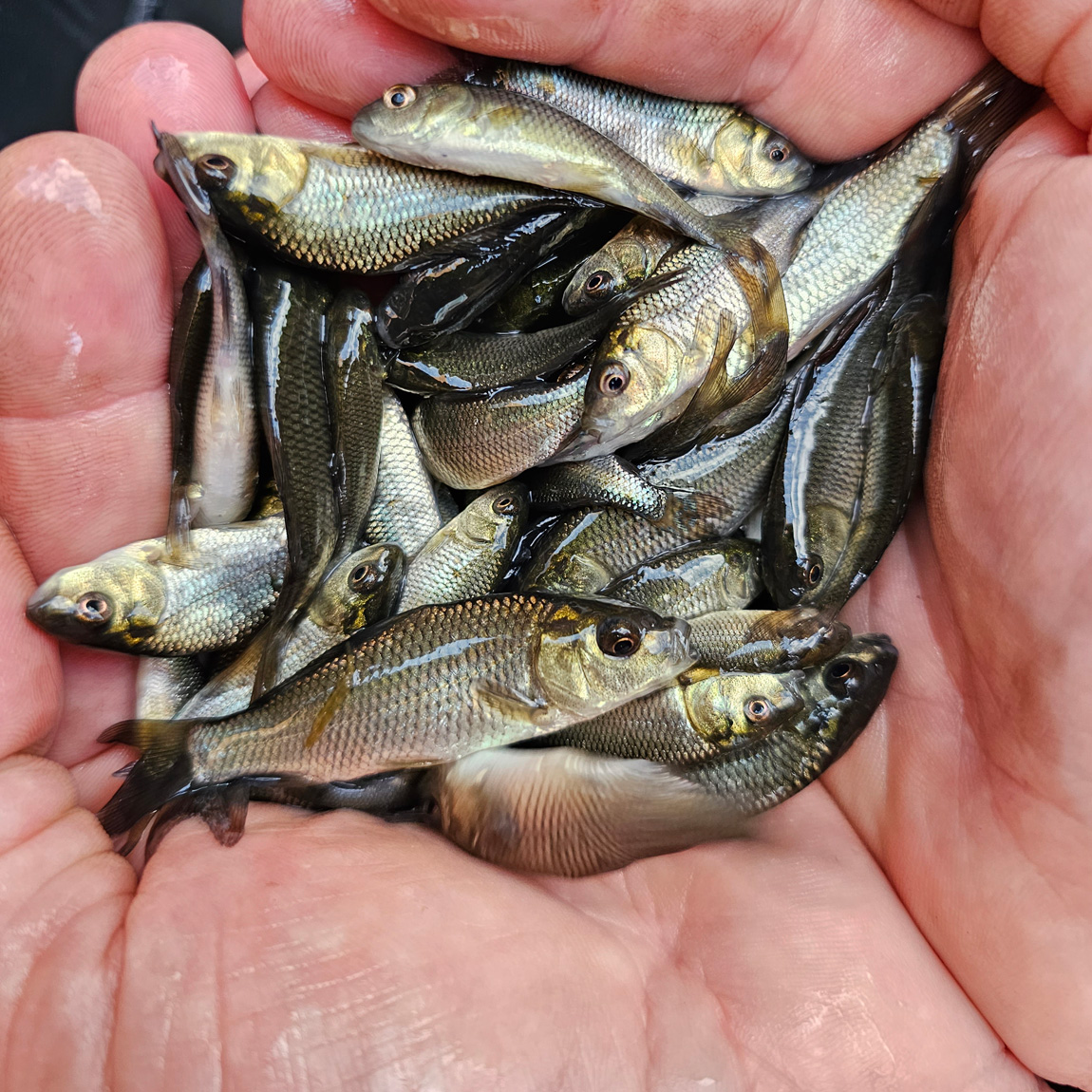
“Class of 2024” collected as fry from Llyngwyn.